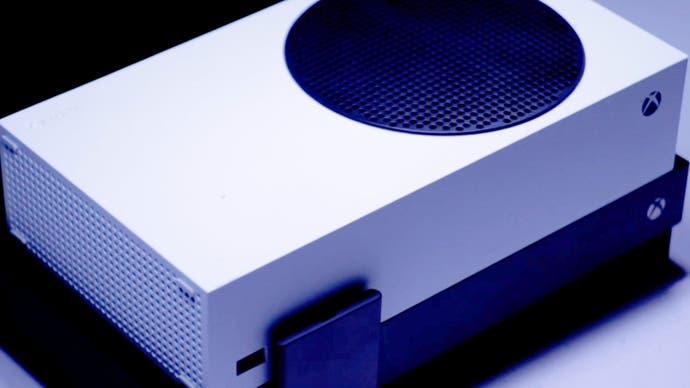This console transition period has been a mess, and will continue through 2022
It's making me cross.
Yesterday's announcement that Sony has extended the PlayStation 4's lifespan thanks to the ongoing supply issues facing the PlayStation 5 means we will remain in console transition limbo for a while longer.
Microsoft, meanwhile, has stopped production of new Xbox One consoles, though said back in 2020 that it would continue to support the Xbox One with first-party games for at least two years.
This makes it all the more important that both Sony and Microsoft continue to improve the shaky foundations of their cross-gen upgrade paths, more than a year after PS5 and Xbox Series X/S first arrived.
Away from console manufacturers, third-party publishers are also still releasing games across both generations, and will likely continue to do so for at least another year in order to maximise their customer base.
Back in October, EA announced that owners of Battlefield 2042's last-gen standard edition would in fact be able to upgrade their copy to current-gen. This was generally welcomed as a positive move.
It meant PS4 and Xbox One players would no longer have to shell out at least £89.99 for the 'Gold Edition' to have the privilege of upgrading their game to a PS5 or Xbox Series X/S copy at a future date. Moreover, it meant cross-gen players wouldn't be forced to purchase a digital copy of the game to upgrade.
You might think this was EA finally learning its lesson and realising it was in its best interests to make cross-gen upgrades as easy as possible. But it's worth remembering this is a lesson it had already apparently learned almost eight years ago, with the last console cross-gen period.
In 2013, owners of Battlefield 4 or FIFA 14 on Xbox 360 and PlayStation 3 could trade in their discs and upgrade to the respective next-gen editions for just a tenner. Similar offers were available in other regions, with upgrades for just $9.99 in the US.
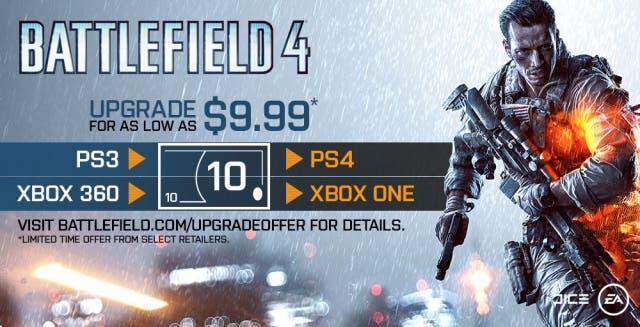
The most significant aspect of that upgrade programme was its ease of use. There was no need to mess around with digital dual entitlement schemes - which sometimes have issues initially preventing them from working properly. Better yet, that deal wasn't tied digitally to your account, so you could take a game to a friend's house or resell it if you were so inclined.
The current cross-gen period has been anything but easy. Publishers are obsessed with nudging gamers to digital purchases and upgrades, where there are endless restrictions to ownership and where it is impossible to resell most copies.
Let's return to 2013, but this time looking at Activision's release of Call of Duty Ghosts. Just like Battlefield 4, owners of Xbox 360 or PS3 versions of Ghosts could trade in their discs at participating retailers, but they could also upgrade their copies digitally for £10. Look at that consumer choice!
This generation, in contrast, Call of Duty Black Ops Cold War players looking to upgrade to the PS5 or Xbox Series X/S found their options not only limited but also convoluted.
While owners of the digital version had the option to upgrade from their respective storefronts, only PS4 owners could upgrade their physical copies to a digital PS5 version. Xbox One owners were completely out of luck, with no mechanism to upgrade their physical copies. The same was true for PS4 owners with a disc copy but who decided to purchase a PS5 Digital Edition.
The answer? Activision was gracious enough to sell digital cross-gen bundles for both platforms which got past the issues with physical copies - but only at a price.
Of course, players could also simply choose not to upgrade their copy, and run the game under backwards compatibility. No sweat, right? Except the different editions are different in small but significant ways.
On Xbox, both an Xbox One edition and a general Xbox edition of the game exists. The Xbox One edition, as you might have guessed, only contains the Xbox One version of the game but can be played on Xbox Series consoles. The general Xbox version contains both the Xbox One version and Xbox Series versions of the game.
All of this might seem pretty straightforward until you have a look at the game covers for both editions side-by-side. If you weren't paying close attention, you may have thought this was simply the same image twice.
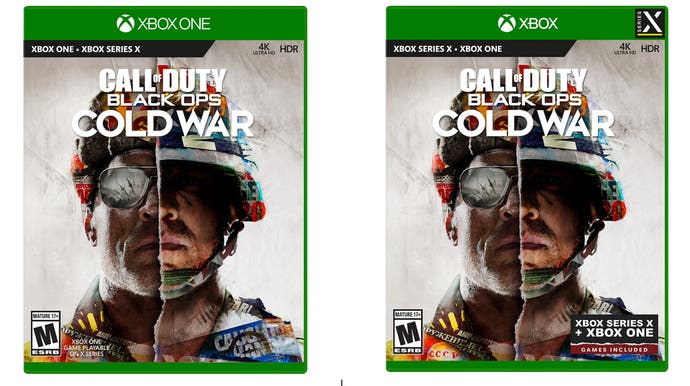
Since Microsoft introduced Xbox Smart Delivery, the idea was that Xbox owners could safely purchase any cross-gen Xbox title, stick the disc in the console, and the Xbox would automatically install the correct version of the game. It's a novel way to stop the release of endless different SKUs of the same game in the cross-gen period. Except third-party publishers had other plans.
As parts of the industry decided to raise the price of games for the new generation by £10, different versions of these games at different price points needed to be created, depending on whether it was to be played on a last-gen or current-gen console. A little confusingly, since Microsoft continues to push Smart Delivery, current-gen editions of Xbox games will also contain last-gen versions - something which, from the box art, could be a little unclear.
I should note that these problems were simply not teething issues from 2020 that have now been resolved. 2021 Call of Duty Vanguard had the exact same issues.
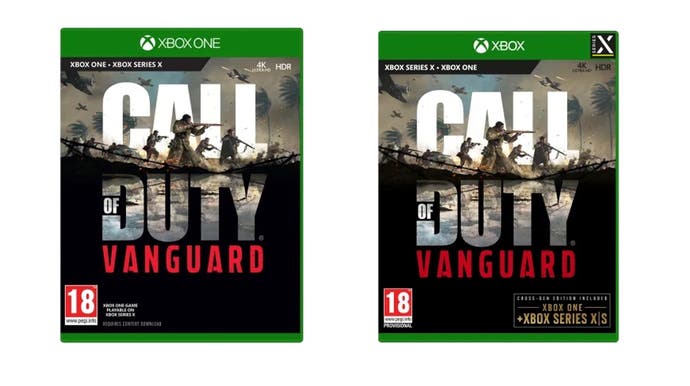
Of course, it isn't just third-party publishers which have made things complicated. Sony started off the generation promising that its initial crop of first-party cross-gen titles would offer dual entitlement - but not the delayed Horizon Forbidden West. After a severe backlash from the community, Sony reversed course and reintroduced dual entitlement to PS4 pre-orders of the game.
This has led to an awkward pricing proposition where the PS5 edition sits alongside the PS4 version, which is both £10 cheaper and offers a free upgrade to PS5. As a PS5 owner, why would I pay £10 more just to get the same game in a white sleeve? Is Sony hoping PS5 owners won't notice? It's this circumstance where Xbox's single edition approach makes more sense.
It's worth noting, too, that Horizon Forbidden West's cross-gen reversal may still be a one-off. God of War Ragnarok, another first-party PlayStation title Sony announced at a later date would be cross-gen, this isn't yet announced as being eligible for free upgrade. It is due for launch at some point in 2022, though Sony has not said exactly when.
Finally, there are PS5 patches for older PS4 games which can sometimes overlap with full paid upgrades to PS5 editions. Ghost of Tsushima, for example, received a free PS5 patch which boosted frame rates to 60 FPS. But the title was later re-launched as a full "Director's Cut" with additional enhancements and new story content.
Fundamentally, Sony lacks a coherent strategy for the PS4 to PS5 upgrade path, which continues to be confusing.
Not all publishers have been so puzzling with their upgrade paths. To its credit, Ubisoft has been offering free next-gen upgrades since the start of the new generation. Assassin's Creed Valhalla, Watch Dogs: Legion, Rainbow Six Siege, and Far Cry 6, to name just a few, all have free upgrades available. Better yet, upgrades work seamlessly through Xbox Smart Delivery or PlayStation 5's native upgrade system (despite its recurring quirks). But, of course, Ubisoft can make upgrades so seamless because it hasn't yet raised the price for current-gen versions of their games.
Microsoft's Smart Delivery system has been praised for making upgrades painless, meanwhile. If I wanted to purchase a physical copy of Halo Infinite, I would simply buy the standard edition that contains both Xbox One and Xbox Series versions of the game. Better yet, Microsoft has now updated its game packaging for added clarity!
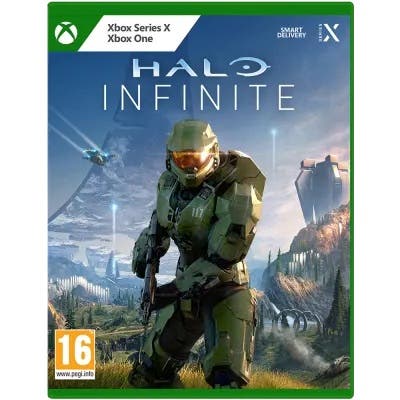
Looking ahead, Elden Ring uses Smart Delivery, meaning Xbox players only have to deal with one version of the game. PlayStation, on the other hand, still has two separate versions for both generations, although PS4 copies can be digitally upgraded for no extra cost. On the plus side, both versions are the same price so consumers should just pick the version that corresponds to their console.
This cross-gen period has been unnecessarily messy. Even if we're willing to resign ourselves to digital upgrade paths, Microsoft and Sony both could have done more to make this period a little easier. Microsoft could have done more to encourage Smart Delivery for all cross-gen third party titles, while Sony could have simplified their game editions by having a single cross-gen PlayStation edition just like Xbox.
On PC, you pay lower prices for the same game that can technically run as low as a last-gen console or exceed the graphical fidelity of the latest consoles for not a penny more. When games receive upgrades or remasters, there is an expectation among the PC gaming community that existing owners get free upgrades. And, most of the time, those upgrade versions automatically appear in their Steam library. Why then should console owners be nickel-and-dimed, or be forced to research the many different editions of a game to find the right one?
Part of the reason is, of course, games are getting more expensive to make. Sure, there are plenty of fantastic indie games developed with a small budget. But triple-A publishers claim to differentiate themselves with ambitious and large-scale games. Combined with a live service model where publishers feel pressured to keep releases updated with free content to stay relevant, perhaps we should accept a price rise, even if it complicates things.
In the meantime, this cross-gen mess will continue in 2022, as this generation's large-scale fragmentation of players stretches on - thanks to global chip shortages and issues with obtaining new console stock. This confusion only creates another barrier to gaming for those who do purchase a PS5 or Series X - if they can find one.
Microsoft, EA and Activision declined to comment when approached for this article, while Sony did not respond.
